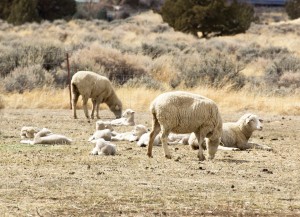Filthy. Smelly. Not fit for decent society. Outcasts.
Otherwise known as shepherds.
Shepherds fulfilled an important need in ancient Israel. They watched over the flocks—flocks that provided food for the nation’s physical sustenance as well as temple sacrifices for the worship of Yahweh. An important job, yet no one other than another shepherd would rub shoulders with them, at least not willingly. Yet it was to these outcasts that an angel of the Lord appeared with an amazing announcement. The long-awaited Messiah had finally come! The angel even told them where they would find the baby: not in a palace, but in a manger. The joy they felt when they saw the child overflowed into joy and praise to God.
Yet it was to these outcasts that an angel of the Lord appeared with an amazing announcement. The long-awaited Messiah had finally come! The angel even told them where they would find the baby: not in a palace, but in a manger. The joy they felt when they saw the child overflowed into joy and praise to God.
It’s one thing for human shepherds to be outcast by the nation. But have you ever stopped to consider that Shepherd is the name by which The Lord referred to Himself? God the Father was Israel’s shepherd (Ezekiel 34). Jesus proclaimed Himself the good shepherd (John 10:14).
And like the human shepherds, in many ways the Great Shepherd was also an outcast among His people. During the three years of His earthly ministry, Jesus was rejected by Israel’s religious leaders. They had caused the people to value ritual and rules over true relationship with God.
- Our Shepherd came willingly, knowing He would be rejected.
- He came to His sheep, knowing He was the Lamb of God who takes away the sin of the world.
- He came to die, knowing it was the only way to bring us eternal life.
- He became an outcast on earth, so that we would not be outcast from heaven.
God reached out to shepherd outcasts two-thousand years ago. He is still reaching out to outcasts today. It’s why Jesus came. It’s why He died.
It’s also why I live…and it’s the source of my joy.





0 Comments